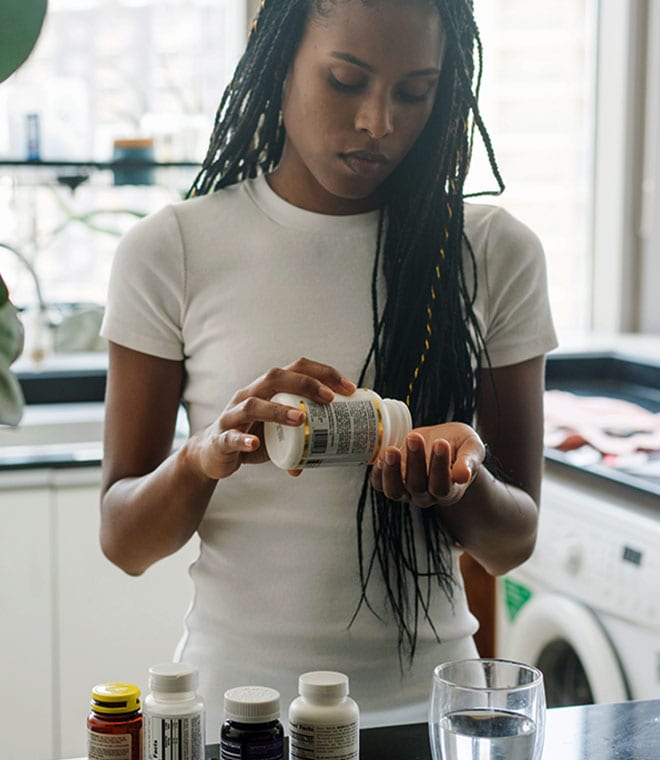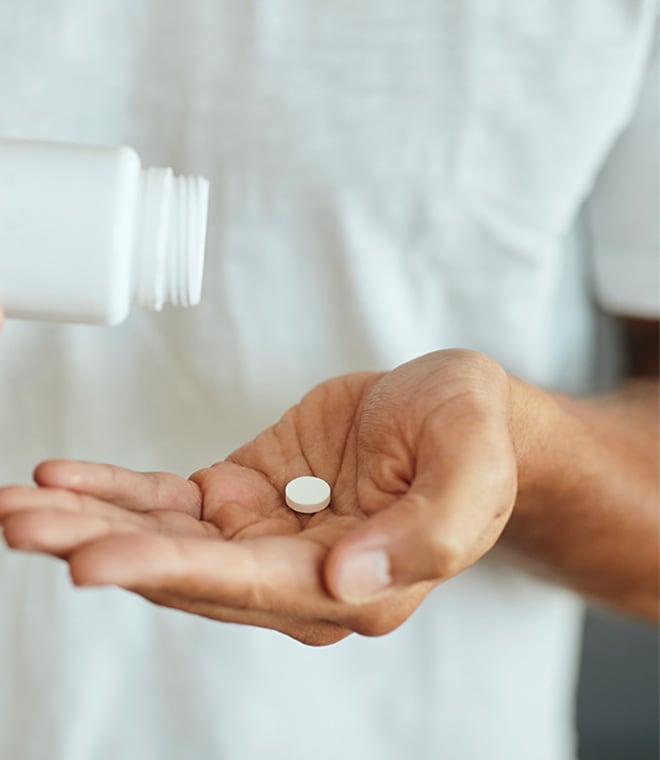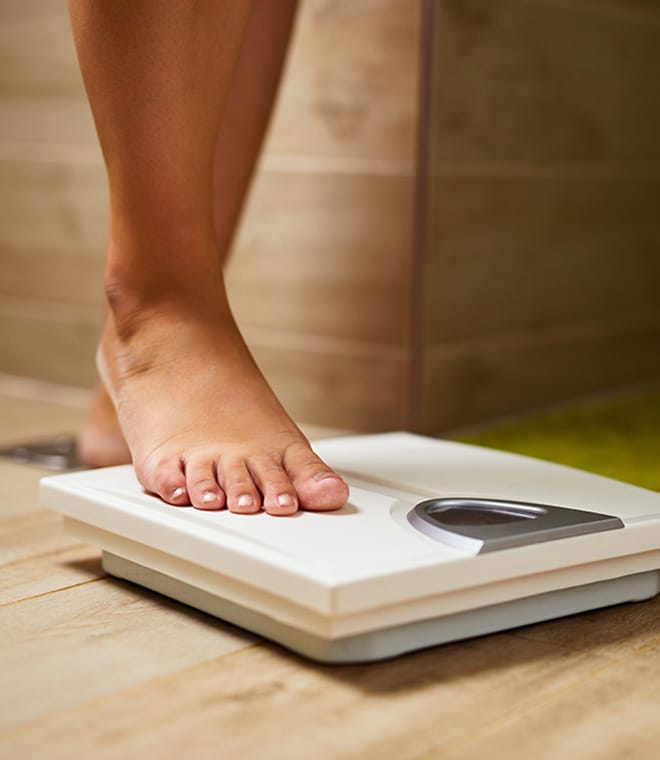Wellness
Biotin for hair growth: Can it help?
By Anna H. Chacon, MD, Fellow of the American Academy of Dermatology Oct 22, 2024 • 4 min
Biotin is an essential B vitamin that is found in certain foods and is available as a dietary supplement. Biotin is touted for its ability to help promote hair growth, and it’s a common ingredient in shampoos, conditioners and hair growth products. Here we take a look at biotin as a potential remedy for hair loss or thinning hair.
Does biotin help hair growth?
Biotin plays an important role in the production of keratin, the protein that makes up your hair. However, the evidence for this vitamin as a treatment for hair loss is limited.
While a few case reports have shown taking biotin supplements helped regrow hair, these were in patients with biotin deficiency. More research is needed to understand the potential benefits of biotin on hair growth in healthy individuals.
Can biotin help prevent hair loss?
Much like the findings on biotin for hair growth, biotin supplementation to help prevent hair loss may be useful in people who are biotin deficient. There’s no good quality evidence to support claims that it helps nondeficient people regrow their hair or that it prevents hair loss. Still, it’s widely touted as a hair-loss remedy, and many brands of biotin supplements and products that contain biotin often advertise it as such. But products like biotin oil for hair and other topical biotin hair treatments generally don’t work, although there is no evidence that they cause harm.
How do you know if you have a biotin deficiency?
Biotin deficiency is rare, and no reports have ever identified a severe deficiency in a healthy person who eats a balanced diet.
Signs of biotin deficiency include:
- Thinning hair
- Scaly, red rash around the eyes, nose and mouth
- Seizures
- Skin infections
- Brittle nails
- Neurologic symptoms, such as depression, hallucinations and lethargy
Risk factors for a biotin deficiency include:
- Biotinidase deficiency, which is a genetic disorder that prevents the body from releasing free biotin
- Heavy alcohol use, which inhibits the absorption of biotin
- Pregnancy and breastfeeding, which may lead the body to increase its use of biotin or reduce absorption
Should you take a biotin supplement?
While biotin is water soluble and considered safe when consumed in supplement form, high levels of biotin in the blood can interfere with certain lab tests, so it’s important to tell your healthcare provider if you’re taking biotin supplements.
The adequate intake level of biotin for adults is considered to be 30 mcg daily. Most people get enough biotin from their diet and don’t need supplements. Food sources of biotin include eggs, meat, fish, nuts, seeds and certain vegetables, such as sweet potatoes.
If you have symptoms of a biotin deficiency, or you’re experiencing unexplained hair loss, visit your healthcare provider. They can help you determine the cause and recommend an effective treatment to regrow hair or prevent further loss.
Updated by Amy Magill, MA, RDN, October 2024.



